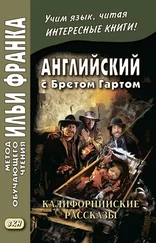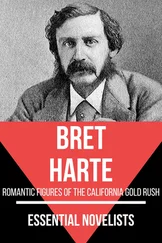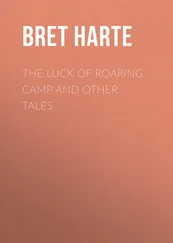Bret Harte - A Waif of the Plains
Здесь есть возможность читать онлайн «Bret Harte - A Waif of the Plains» — ознакомительный отрывок электронной книги совершенно бесплатно, а после прочтения отрывка купить полную версию. В некоторых случаях можно слушать аудио, скачать через торрент в формате fb2 и присутствует краткое содержание. Жанр: foreign_sf, literature_19, foreign_antique, foreign_prose, на английском языке. Описание произведения, (предисловие) а так же отзывы посетителей доступны на портале библиотеки ЛибКат.
- Название:A Waif of the Plains
- Автор:
- Жанр:
- Год:неизвестен
- ISBN:нет данных
- Рейтинг книги:5 / 5. Голосов: 1
-
Избранное:Добавить в избранное
- Отзывы:
-
Ваша оценка:
- 100
- 1
- 2
- 3
- 4
- 5
A Waif of the Plains: краткое содержание, описание и аннотация
Предлагаем к чтению аннотацию, описание, краткое содержание или предисловие (зависит от того, что написал сам автор книги «A Waif of the Plains»). Если вы не нашли необходимую информацию о книге — напишите в комментариях, мы постараемся отыскать её.
A Waif of the Plains — читать онлайн ознакомительный отрывок
Ниже представлен текст книги, разбитый по страницам. Система сохранения места последней прочитанной страницы, позволяет с удобством читать онлайн бесплатно книгу «A Waif of the Plains», без необходимости каждый раз заново искать на чём Вы остановились. Поставьте закладку, и сможете в любой момент перейти на страницу, на которой закончили чтение.
Интервал:
Закладка:
CHAPTER IV
The dash forward to the train, securely held in the saddle by the arms of their deliverers, was a secret joy to the children that seemed only too quickly over. The resistless gallop of the fiery mustangs, the rush of the night wind, the gathering darkness in which the distant wagons, now halted and facing them, looked like domed huts in the horizon—all these seemed but a delightful and fitting climax to the events of the day. In the sublime forgetfulness of youth, all they had gone through had left no embarrassing record behind it; they were willing to repeat their experiences on the morrow, confident of some equally happy end. And when Clarence, timidly reaching his hand towards the horse-hair reins lightly held by his companion, had them playfully yielded up to him by that hold and confident rider, the boy felt himself indeed a man.
But a greater surprise was in store for them. As they neared the wagons, now formed into a circle with a certain degree of military formality, they could see that the appointments of the strange party were larger and more liberal than their own, or indeed anything they had ever known of the kind. Forty or fifty horses were tethered within the circle, and the camp fires were already blazing. Before one of them a large tent was erected, and through the parted flaps could be seen a table actually spread with a white cloth. Was it a school feast, or was this their ordinary household arrangement? Clarence and Susy thought of their own dinners, usually laid on bare boards beneath the sky, or under the low hood of the wagon in rainy weather, and marveled. And when they finally halted, and were lifted from their horses, and passed one wagon fitted up as a bedroom and another as a kitchen, they could only nudge each other with silent appreciation. But here again the difference already noted in the quality of the sensations of the two children was observable. Both were equally and agreeably surprised. But Susy’s wonder was merely the sense of novelty and inexperience, and a slight disbelief in the actual necessity of what she saw; while Clarence, whether from some previous general experience or peculiar temperament, had the conviction that what he saw here was the usual custom, and what he had known with the Silsbees was the novelty. The feeling was attended with a slight sense of wounded pride for Susy, as if her enthusiasm had exposed her to ridicule.
The man who had carried him, and seemed to be the head of the party, had already preceded them to the tent, and presently reappeared with a lady with whom he had exchanged a dozen hurried words. They seemed to refer to him and Susy; but Clarence was too much preoccupied with the fact that the lady was pretty, that her clothes were neat and thoroughly clean, that her hair was tidy and not rumpled, and that, although she wore an apron, it was as clean as her gown, and even had ribbons on it, to listen to what was said. And when she ran eagerly forward, and with a fascinating smile lifted the astonished Susy in her arms, Clarence, in his delight for his young charge, quite forgot that she had not noticed him. The bearded man, who seemed to be the lady’s husband, evidently pointed out the omission, with some additions that Clarence could not catch; for after saying, with a pretty pout, “Well, why shouldn’t he?” she came forward with the same dazzling smile, and laid her small and clean white hand upon his shoulder.
“And so you took good care of the dear little thing? She’s such an angel, isn’t she? and you must love her very much.”
Clarence colored with delight. It was true it had never occurred to him to look at Susy in the light of a celestial visitant, and I fear he was just then more struck with the fair complimenter than the compliment to his companion, but he was pleased for her sake. He was not yet old enough to be conscious of the sex’s belief in its irresistible domination over mankind at all ages, and that Johnny in his check apron would be always a hopeless conquest of Jeannette in her pinafore, and that he ought to have been in love with Susy.
Howbeit, the lady suddenly whisked her away to the recesses of her own wagon, to reappear later, washed, curled, and beribboned like a new doll, and Clarence was left alone with the husband and another of the party.
“Well, my boy, you haven’t told me your name yet.”
“Clarence, sir.”
“So Susy calls you, but what else?”
“Clarence Brant.”
“Any relation to Colonel Brant?” asked the second man carelessly.
“He was my father,” said the boy, brightening under this faint prospect of recognition in his loneliness.
The two men glanced at each other. The leader looked at the boy curiously, and said,—
“Are you the son of Colonel Brant, of Louisville?”
“Yes, sir,” said the boy, with a dim stirring of uneasiness in his heart. “But he’s dead now,” he added finally.
“Ah, when did he die?” said the man quickly.
“Oh, a long time ago. I don’t remember him much. I was very little,” said the boy, half apologetically.
“Ah, you don’t remember him?”
“No,” said Clarence shortly. He was beginning to fall back upon that certain dogged repetition which in sensitive children arises from their hopeless inability to express their deeper feelings. He also had an instinctive consciousness that this want of a knowledge of his father was part of that vague wrong that had been done him. It did not help his uneasiness that he could see that one of the two men, who turned away with a half-laugh, misunderstood or did not believe him.
“How did you come with the Silsbees?” asked the first man.
Clarence repeated mechanically, with a child’s distaste of practical details, how he had lived with an aunt at St. Jo, and how his stepmother had procured his passage with the Silsbees to California, where he was to meet his cousin. All this with a lack of interest and abstraction that he was miserably conscious told against him, but he was yet helpless to resist.
The first man remained thoughtful, and then glanced at Clarence’s sunburnt hands. Presently his large, good-humored smile returned.
“Well, I suppose you are hungry?”
“Yes,” said Clarence shyly. “But—”
“But what?”
“I should like to wash myself a little,” he returned hesitatingly, thinking of the clean tent, the clean lady, and Susy’s ribbons.
“Certainly,” said his friend, with a pleased look. “Come with me.” Instead of leading Clarence to the battered tin basin and bar of yellow soap which had formed the toilet service of the Silsbee party, he brought the boy into one of the wagons, where there was a washstand, a china basin, and a cake of scented soap. Standing beside Clarence, he watched him perform his ablutions with an approving air which rather embarrassed his protege. Presently he said, almost abruptly,—
“Do you remember your father’s house at Louisville?”
“Yes, sir; but it was a long time ago.”
Clarence remembered it as being very different from his home at St. Joseph’s, but from some innate feeling of diffidence he would have shrunk from describing it in that way. He, however, said he thought it was a large house. Yet the modest answer only made his new friend look at him the more keenly.
“Your father was Colonel Hamilton Brant, of Louisville, wasn’t he?” he said, half-confidentially.
“Yes,” said Clarence hopelessly.
“Well,” said his friend cheerfully, as if dismissing an abstruse problem from his mind, “Let’s go to supper.”
When they reached the tent again, Clarence noticed that the supper was laid only for his host and wife and the second man—who was familiarly called “Harry,” but who spoke of the former always as “Mr. and Mrs. Peyton”—while the remainder of the party, a dozen men, were at a second camp fire, and evidently enjoying themselves in a picturesque fashion. Had the boy been allowed to choose, he would have joined them, partly because it seemed more “manly,” and partly that he dreaded a renewal of the questioning.
Читать дальшеИнтервал:
Закладка:
Похожие книги на «A Waif of the Plains»
Представляем Вашему вниманию похожие книги на «A Waif of the Plains» списком для выбора. Мы отобрали схожую по названию и смыслу литературу в надежде предоставить читателям больше вариантов отыскать новые, интересные, ещё непрочитанные произведения.
Обсуждение, отзывы о книге «A Waif of the Plains» и просто собственные мнения читателей. Оставьте ваши комментарии, напишите, что Вы думаете о произведении, его смысле или главных героях. Укажите что конкретно понравилось, а что нет, и почему Вы так считаете.












